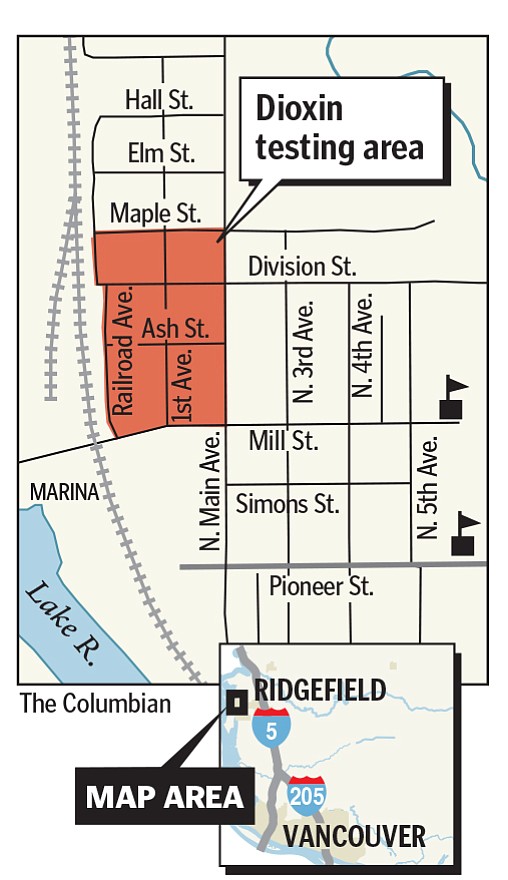As the Port of Ridgefield says its longtime waterfront cleanup efforts are near completion, a recent inspection turned up dangerous contaminants downtown.
Now, officials with the port and the Department of Ecology are concerned that dioxins — known carcinogens — from the former wood treating site may have seeped into yards just up the hill from the waterfront.
Investigators will test the affected area, eight blocks with 38 homes between Maple and Mill streets.
Pacific Wood Treating operated on 24 acres of the Lake River waterfront for three decades, until declaring bankruptcy in 1993. It used the land to chemically and pressure-treat telephone poles and railroad ties. The residue seeped into the land, silt and water around the plant, creating one of the state’s largest environmental cleanup sites. After Pacific Wood Treating left, Ecology and port investigators found hazardous contaminants including arsenic, chromium and pentachlorophenol.




